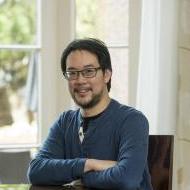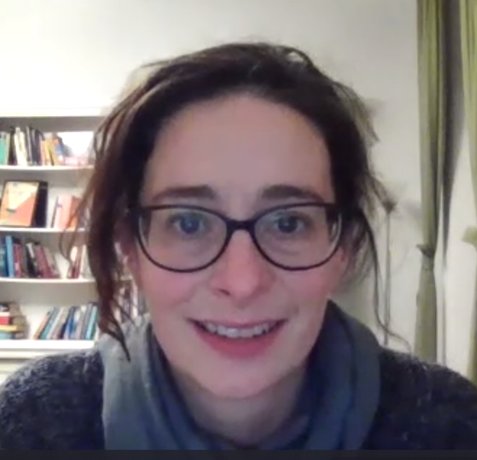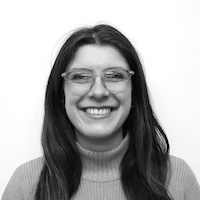UNIVERSE-HPC Project Team
The project brings together partners with expertise in training from different
areas: Edinburgh (EPCC MSc in HPC and Edinburgh Carpentries), Oxford (SABS R3
CDT and RSE group), Southampton (research software engineering and
Carpentries), and Imperial (community building and RSLondon)

Professor and Director/PI, Software Sustainability Institute
EPCC, University of Edinburgh
UNIVERSE-HPC Roles: Project Principal Investigator (PI)
Neil is the founding Director and Principal Investigator of the Software Sustainability Institute, and is based at the University of Edinburgh. He enables research software users and developers to drive the continued improvement and impact of research software, and is responsible for representing both the Institute and UK researchers at a national and international level. Neil is also the PI of UNIVERSE-HPC.

HPC Project Manager; Programme Director, online MSc in HPC
EPCC, University of Edinburgh
UNIVERSE-HPC Roles: WPs 1-4
Weronika is involved in a variety of different collaboration projects centered on high performance computing, including the European collaborative projects CRESTA and APES. Her main role is in the APES project where she is parallelising and optimizing a molecular dynamic package called TINKER. I’m also involved in HPC training and development of EPCC’s online distance learning courses.
David is EPCC’s Director of Teaching and leads all of EPCC’s HPC training activities. He has been Programme Director for EPCC’s on-campus MSc Programmes since their inception in 2001, and organizes two on-campus and one online MSc course per year. David runs EPCC’s PRACE Training Centre and regularly teaches courses for the UK national supercomputer services.

Project Manager, Software Sustainability Institute
EPCC, University of Edinburgh
UNIVERSE-HPC Roles: Project Management
Kirsty works as a Project Manager at the Software Sustainability Institute in EPCC within the University of Edinburgh. Kirsty holds a BSc in Chemistry from Edinburgh and a PhD in atmospheric science from the University of Leeds. She is an academic in the topic of air pollution and climate change and has a strong interest in good software practices and the development of open software in research. Kirsty joined the SSI from the University of Leeds, where she still retains a part-time role as a member of the Centre for Environmental Modelling and Computation.
Kirsty is currently citizen science co-lead on a NIHR project led by Born in Bradford to measure children’s exposure to air pollution. Kirsty is an active member of the Research Software Engineering (RSE) community and is treasurer of the UK RSE conference. From 2018 to 2020 she was RSE Theme Lead for the N8 CIR where she worked to develop a community of research software engineers across the universities in the N8 partnership.

Professor of Computational Biology
University of Oxford
UNIVERSE-HPC Roles: Project Co-I
David is the Director of Graduate Studies for the Mathematical, Physical and Life Sciences Division and also chairs the Department of Computer Science’s Equality and Diversity Committee at the University of Oxford. He is a fellow of New College.
He was awarded substantial EPSRC funding to establish and direct the Life Science Interface Doctoral Training Programme. This innovative and four-year DPhil programme was designed and individually tailored to provide comprehensive training in the application of techniques, taken from the mathematical and physical sciences, to cutting-edge research in the biomedical and life sciences.

Programme Co-Director
Department of Computer Science, University of Oxford
UNIVERSE-HPC Roles: WP1 Lead
Martin is a Senior Research Software Engineer (RSE) in the Oxford RSE group and is also its co-founder, part of the Department of Computer Science at the University of Oxford.
His research interests include: numerical modeling and simulation, particle-based methods, Bayesian inference, developing robust and reliable software for research. He is involved in a number of research software projects, including Aboria, Chaste, PINTS, Smoldyn, SPH-DEM, and PyBaMM.
Fergus is currently working as a research software engineer at the University of Oxford with Martin Robinson and David Gavaghan. He helped found the Oxford RSE group in December 2018, since then, the group has more than doubled in size. His background is mathematics (MMAth at the University of Warwick in 2013) and DPhil in Systems Biology in the Wolfson Centre for Mathematical Biology at the University of Oxford.
His DPhil research focused on the development of computational tools which he applied to the understanding of processes in developmental biology. He is also a leading maintainer and developer on the Chaste project, and contributes to a number of other open source projects including Trase and PINTS, and in the C++ programming language.

Advanced Research Fellow
Department of Computing, Imperial College London
UNIVERSE-HPC Roles: Project Co-I; WP4 Lead
Jeremy is an Advanced Research Fellow in the Department of Computing and Director of Research Software Engineering Strategy at Imperial College London. He holds an EPSRC Research Software Engineering (RSE) fellowship, awarded in EPSRC’s 2nd RSE fellowships call in 2017. He has been actively involved in the building of communities that help bring together researchers and software developers from a wide range of research domains. He leads the Imperial Research Software Engineering Community which he founded in 2015, and also runs RSLondon, the regional research software community for London and the South East of England which he started in 2018.
Within UNIVERSE-HPC, Jeremy leads WP4 and is also actively involved in WPs 1, 2 and 3.

Scientific Community Manager
Department of Computing, Imperial College London
UNIVERSE-HPC Roles: Community Management
Eirini works as a Scientific Community Manager within the UNIVERSE-HPC project and she is based at Imperial College London. Eirini joined Imperial from the Alan Turing Institute, where she worked as a Research Community Manager supporting a consortium on AI and Multiple Long-term Conditions to work more collaboratively and reproducibly. She previously helped set up Open Science Community Nijmegen and R-Ladies Nijmegen.
Eirini holds a PhD from the Max Planck Institute for Psycholinguistics in Nijmegen, the Netherlands where she discovered her love for coding and all things reproducibility. In parallel to her position as a Scientific Community Manager, she works as a Quantitative Researcher at the RSA (the royal society for arts, manufactures and commerce).

Software Architect and Research Software Group (RSG) Lead
University of Southampton
UNIVERSE-HPC Roles: Project Co-I
Steve leads the Software Sustainability Institute’s RSG activities to help researchers improve their research software. His PhD in Computer Science, awarded by Southampton in 2001, focused on modeling development processes to support the capture of software requirements. He also teaches Large Scale Distributed Systems as part of Southampton’s BSc in Computer Science. Steve’s work at the Institute involves assisting researchers and their communities by consulting on software that is integral to their work.
Before joining the Institute, he worked as a software architect at OMII-UK and was involved in the RICES project that investigated information inconsistency problems in enterprise systems. He has also been involved in development and implementation for the Open Grid Forum, where he co-chairs two working groups in the areas of interoperability and data movement. Steve was also a work package leader for the IGE and OMII-Europe EU-funded projects.

Professor and Deputy Director, Software Sustainability Institute
University of Southampton
Professor Simon Hettrick works with stakeholders from across the research community to develop policies that support research software, the people who develop that software and the researchers who rely on it. Simon is a passionate advocate for Research Software Engineers. He orchestrated a campaign to gain recognition for this community, which has grown from a handful of people in 2013 to a substantial international community numbering in the thousands. He was the founding chair of the UK’s Association of Research Software Engineers and is now a Trustee of the Society of Research Software Engineering and its Treasurer. He has been treasurer of the RSE conference since it began in 2016.
Simon is one of the Directors of the Southampton Research Software Group based at the University of Southampton. The group makes research software engineering expertise available to researchers across the University, provides training in software engineering and encourages collaboration and the sharing of knowledge between researchers who rely on software.
He is a member of the UKRI expert group on e-Infrastructure, a member of the STFC Projects Peer Review Panel (large projects), and an Advisory Board member for the journal Patterns. He has a background in physics and patent law.

